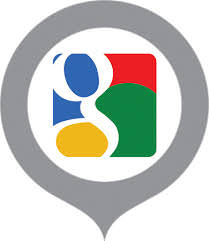Do you have a google local optimization campaign? If not, it is time to think about developing one. Keep reading if you want to learn more on this topic so you can properly optimize your website.
Develop an Efficient Google Local Optimization Campaign
Search engines use algorithms to analyze web pages and index content. These algorithms change regularly, which is why you need to keep your campaign up to date. Subscribe to different google places optimization newsletters or blogs to read about the latest trends and methods used by search engines. Do not hesitate to completely rethink your Google Local Optimization campaign if you find that your methods have become obsolete.
 Take the time to optimize all your pages. Place strong keywords so you can describe your content accurately. Your keywords should appear in different HTML tags so you can indicate what each element is about. Place keywords in title tags so you can describe an article, in an alt tag to describe an image and in the anchor text of your links to describe the content of the page you are linking to.
Take the time to optimize all your pages. Place strong keywords so you can describe your content accurately. Your keywords should appear in different HTML tags so you can indicate what each element is about. Place keywords in title tags so you can describe an article, in an alt tag to describe an image and in the anchor text of your links to describe the content of the page you are linking to.
Try getting new back-links regularly. Back-links are the best strategy to get more exposure. You could for instance use article marketing to create content on a weekly basis. Share this content on article directories, blogs and online encyclopedias. Try finding webmasters who are interested in featuring your content on their pages and consider buying some ad space if you want to place a link on a popular page.
Once visitors find your site, they should be able to easily navigate your content. You can make navigation easier by adding a search bar and creating a detailed menu. Your site-wide links should be organized in a menu and lead your visitors to all your important pages. Create individual links for your secondary pages and place these links in visible spots, for instance within the first few paragraphs of your articles.
Search Engine Spiders to Analyze Your Content
Design your website as simply as possible. A complex design will make it hard for search engine spiders to analyze your content and follow your links. You should create very simple HTML pages and use a CSS sheet for your design to prevent your HTML pages from becoming too busy. You should avoid using Flash and Java Script for your important elements since search engine spiders cannot read these languages.
Keep track of how your site ranks in search results. There are several Google Local Optimization plug ins you can use to get an idea of how your pages rank and which back-links are bringing the most traffic to your site. You can also use a visitor counter on your site to find out which links your visitors are following or which keywords they are looking up to find your content. Go over your results regularly and look for ways to improve your campaign.
Developing an efficient google local optimization campaign should allow you to rank higher in search results. Apply the tips from this article to develop your campaign and do more research on other Google Local Optimization strategies.